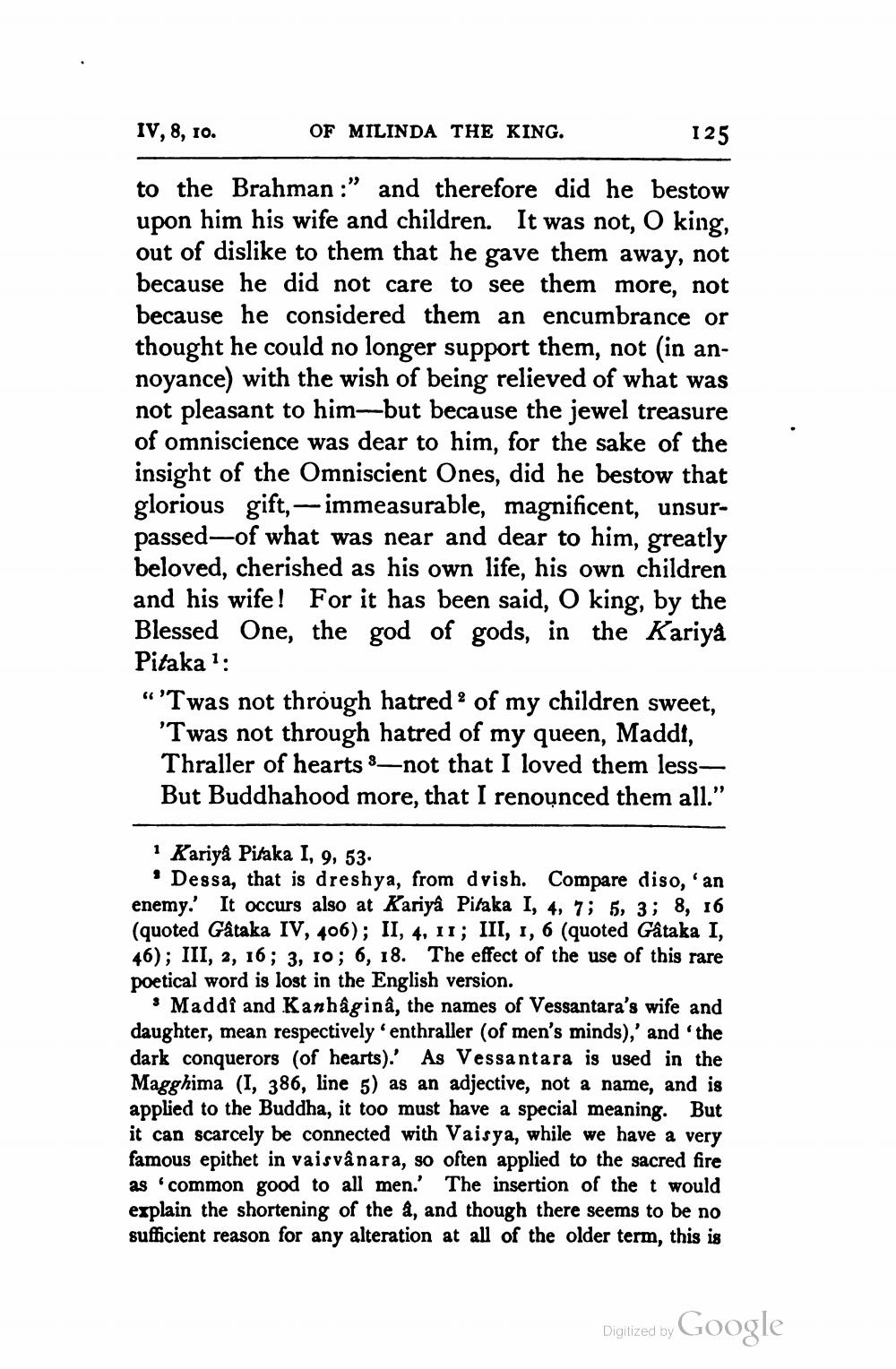________________
IV, 8, 10.
OF MILINDA THE KING.
125
to the Brahman :" and therefore did he bestow upon him his wife and children. It was not, O king, out of dislike to them that he gave them away, not because he did not care to see them more, not because he considered them an encumbrance or thought he could no longer support them, not (in annoyance) with the wish of being relieved of what was not pleasant to him—but because the jewel treasure of omniscience was dear to him, for the sake of the insight of the Omniscient Ones, did he bestow that glorious gift, - immeasurable, magnificent, unsurpassed-of what was near and dear to him, greatly beloved, cherished as his own life, his own children and his wife! For it has been said, O king, by the Blessed One, the god of gods, in the Kariya Pitaka 1 : “ 'Twas not through hatred 2 of my children sweet, 'Twas not through hatred of my queen, Maddf, Thraller of hearts 3—not that I loved them lessBut Buddhahood more, that I renounced them all.”
1 Kariya Pisaka I, 9, 53.
· Dessa, that is dreshya, from dvish. Compare diso, 'an enemy. It occurs also at Kariyå Pitaka I, 4, 7; 5, 3; 8, 16 (quoted Gåtaka IV, 406); II, 4, II; III, 1, 6 (quoted Gataka I, 46); III, 2, 16; 3, 10; 6, 18. The effect of the use of this rare poetical word is lost in the English version.
• Maddi and Kanhàgina, the names of Vessantara's wife and daughter, mean respectively enthraller (of men's minds),' and 'the dark conquerors (of hearts).' As Vessantara is used in the Magghima (I, 386, line 5) as an adjective, not a name, and is applied to the Buddha, it too must have a special meaning. But it can scarcely be connected with Vaisya, while we have a very famous epithet in vaisvânara, so often applied to the sacred fire as 'common good to all men.' The insertion of the t would explain the shortening of the 8, and though there seems to be no sufficient reason for any alteration at all of the older term, this is
Digitized by Google
Digitized by G




